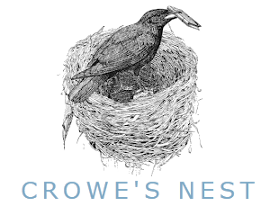Over the past four weeks, we've been talking about the five things that a middle grade kid (but really, not just MG kids) really crave in a novel, and that if you get some of each of the five, it'll be a much more fulfilling book. Guys! We are on the fifth one! If you've missed any of them, I've already talked about
ACTION / ADVENTURE here and
HUMOR here and
SCARINESS here and
MYSTERY here. Today, it's A SENSE OF WONDER.
As much as science fiction would like to claim a monopoly on being able to evoke a sense of wonder, it’s much more than just the feeling that there’s more to the universe, and that it’s a large place. A sense of wonder can be evoked from the teeniest of things, and everything in between.
In Brave New Words: The Oxford Dictionary of Science Fiction
the term sense of wonder is defined as follows:
SENSE OF WONDER n. a feeling of awakening or awe triggered by an expansion of one’s awareness of what is possible
To be filled with admiration, amazement, or awe; marvel
Ways to introduce wonder:
Let’s start with genres.
Fantasy is probably the genre most conducive to wonder. Think of the first time you read Harry Potter and how you felt every time a new magic spell or magic item was introduced. Fantasy gives you huge opportunities to introduce wonder! It's one of the big draws for readers. (Not to mention how much fun it is for the writer!) One important thing to remember if you’re using fantasy– it’ll work better if you focus on character first, and get reader firmly grounded in his/her world before introducing fantasy elements.
Speculative fiction is kind of a broad genre, covering what the world could be like if things were different. There are a lot of opportunities for wonder in speculative, because it can feel like fantasy without being fantasy. Sky Jumpers is speculative. One of the biggest sense of wonders in it— the Bomb's Breath— is something that feels like fantasy, but is actually science, and brings with it that same sense of wonder.
Speaking of science...
Science— Think of today’s science experiments– think of the sense of wonder you got ask a kid whenever your teacher did a science experiment. Or when you learn how something works now. My daughter is in 5th grade, and her teacher did experiments with them every day. My daughter always comes home struck by a sense of wonder. You can tap science to huge amounts for a sense of wonder.
Setting— This can be a huge one, especially because it’s easy. Think of where you’d love to go on vacation the most. You pretty much want to go there because of the sense of wonder it will evoke, right? Whenever you can, think about putting your characters in a more interesting setting. One that evokes more of a sense of wonder. Instead of having your characters walking home from school on the street, have them cut through woods. Or a construction site. Or a swamp.Or anywhere else that's more interesting and awe-evoking than what's normal.
Characters— I read a book called Stargirl. Have you read it? Everyone was raving about it. I immediately understood why, but at the same time, I realized that the reason people loved the book was because the character is quirky, fun, spontaneous, and very different. I have a friend who’s all those things, and in a lot of ways, puts Stargirl to shame. So when I read it, I didn’t have the same reaction as everyone else. That’s when I realized that characters can evoke a sense of wonder, too, and that’s why everyone loved the book.
Be careful if you are using a sense of wonder character that’s very outlandish that it can become too much if they are a main character. Use your instinct. If their personality is wearing you out, they’ll wear out the reader, too.
Animals— There are a ton of animal books out recently that kids love– Like Guardians of Ga’hoole, Seekers, etc. Kids love those because seeing the world through an animal’s eyes brings about a sense of wonder.
Looking at an everyday something— anything— very differently than you’ve looked at it before. When I was a kid, I read a book– I wish I remembered the name of it– about a kid learning life lessons from a neighbor. Anyway, the neighbor had him really study a one inch square part of the lawn, and learn everything there was to know about it. He watched how bugs interacted with others like them and with different species and learned how they used the space and I was completely and utterly fascinated. Looking at something very closely— or in a different context than you’re used to— can evoke a huge sense of wonder. It’s the reason that books like The Borrowers are so well-loved.
Two things to remember:
Don't try to squeeze a sense of wonder into everything, or you overwhelm your reader. With every bit of wonder, there needs to be a bit of the familiar to ground your reader.
You can’t create wonder yourself. What you are really trying for is to get the reader to really stop and think about what is possible. To stop and look at something closely.
The wonder they’ll create themselves.
Releases from your main genre doesn't mean boring. Changing things up a bit and adding in another element will make it a more fulfilling story, especially when you put in some of each of the five elements kids crave.
So.... We're on the last of the five elements. But this isn't the end of talking MG writing! Next Monday,
I'll post about the kinds of things that are most important to an MG protagonist.







































